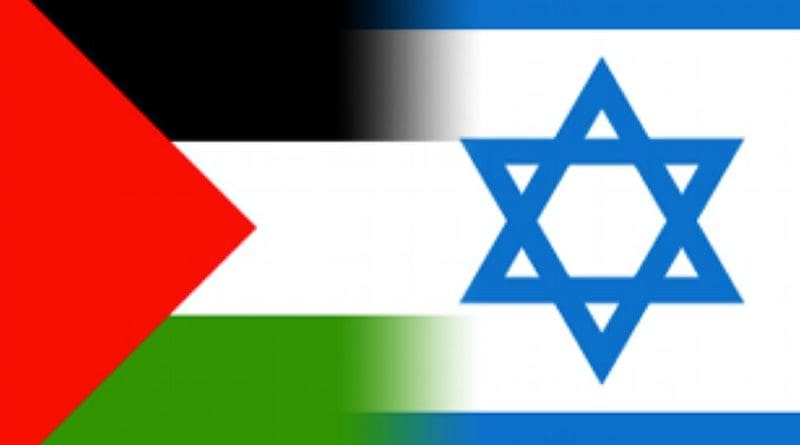Arab Voices Are Vital In Israel’s Knesset: Pity It Just Lost One – OpEd
By Ray Hanania
This week, Zouheir Bahloul, a Palestinian member of the Israeli Knesset representing the Zionist Union political party, announced his resignation after the Knesset passed the nation-state law, which pushes the Jewish state further from democracy and closer to apartheid oppression.
Bahloul has had his share of controversy as an Arab Muslim member of the governing legislature of the so-called “Jewish State.”
In 2014, Bahloul criticized the actions of an Israeli soldier who murdered an incapacitated Palestinian civilian shot and maimed by Israeli soldiers. He was lying immobile on the ground. The Palestinian was accused of attacking several armed soldiers, but the accusation was never proven.
The Zionist Union distanced themselves when Bahloul correctly argued that the victim of the killing was not a terrorist. Bahloul went on to denounce those who “destroy the lives of families” as being the real terrorists, referring to Israel’s illegal punishment of non-Jewish families of individuals accused of acts of “terrorism.”
The Israeli soldier in the case, Elor Azaria, who has become a hero in Israel’s increasingly right-wing Jewish society, was sentenced to just 18 months’ imprisonment but was freed after serving only nine. Palestinians convicted of manslaughter are given a minimum of four years and as much as 20 years in prison when the victims are Jewish.
Bahloul’s voice resonated powerfully as a member of the Israeli Knesset by challenging Israel’s justice system. Resigning from the Knesset, however, will weaken his voice and the voices of Palestinians in Israel. There are a total of 18 Arabs serving in the Knesset, including several Druze who have been less critical of Israeli policies and, in some cases, more distant from Palestinian rights.
Instead of resigning, Bahloul should use his position on the Knesset to speak out more forcefully against Israeli government violations of human rights, civil rights and international law.
Bahloul is one of the leaders of the Israeli Arab community who some say most closely symbolized Arab and Jewish coexistence in Israel. But I understand the pressures he must be under from the radical element who taint the Palestinian cause. In 2008, when I interviewed Israeli Knesset member Nadia Hilou, a Christian Arab member, I was immediately attacked by Palestinian activists who said that any Palestinian who engages in “normalization” with Israel is a “traitor.”
There is a battle over normalization in the Palestinian diaspora, especially in Europe and in America. Anti-normalization rhetoric and policies have become the basis for the expansion of several protest movements, including the BDS (Boycott, Divestment, Sanctions) movement, which began as a protest targeting the illegal Israel settlements but has expanded to include a protest against anything Israeli and even Jewish.
Bahloul’s resignation will empower this extremist element in the Palestinian diaspora, which fought to prevent peace negotiations in the 1990s from ever resulting in compromise and the two-state solution. They want one state, and if they can’t have it, they are willing to sacrifice every Palestinian to prevent compromise. Their motto is “all or nothing,” and usually they end up with nothing.
In contrast, Arab Knesset members Ahmad Tibi, Haneen Zoabi and Ayman Odeh have been powerful voices exposing Israel’s human rights violations. Tibi was physically attacked while protesting against the opening of the US embassy in West Jerusalem, which many correctly argue is an occupied city no different from East Jerusalem.
The Arab Knesset members have often filled the void created by the failure of the Israeli and Western news media to fully and accurately report on Israel’s constant atrocities against non-Jews. The Israel government imposes a military censorship on all media inside Israel and in the Palestinian territories of the West Bank, deleting and removing reporting that it deems threatens Israel’s sovereignty or challenges its existence.
Israel’s right-wing government, led by Prime Minister Benjamin Netanyahu, survives by convincing supporters such as the US that its human rights violations are defensive measures to prevent “bloodthirsty” Arabs from killing Jewish children. The censorship undermines the facts that show that Israel is guilty of violating International law, such as their unprovoked attacks against Palestinian civilians who are protesting inside Gaza at the border with Israel against its oppressive embargo of their territory.
Nearly 200 Palestinians have been killed, shot in the head by Israel snipers as they protested from distances of more than 200 yards from Israel’s border. A few, such as 21-year-old nurse Razan Al-Najjar, were engaged in providing medical treatment to other civilian victims.
The Palestinian Authority’s ability to govern is being undermined by Israel, causing it to steadily deteriorate to the point of collapse. When it does, the only voices left will be the Palestinians elected to the Knesset by Arab voters, who are nearly 20 percent of the Israeli population.
If Israel continues to dismantle the two-state solution and pushes towards apartheid government in which Jews are given privileges above non-Jews, the strongest remaining Palestinian voices will be those who are now serving in the Knesset.
As the prospect of a separate Palestinian state diminishes, West Bank Palestinians should demand Israeli citizenship to further strengthen the non-Jewish voices in apartheid Israel. That’s the only option Israel’s policies have left Palestinians.

